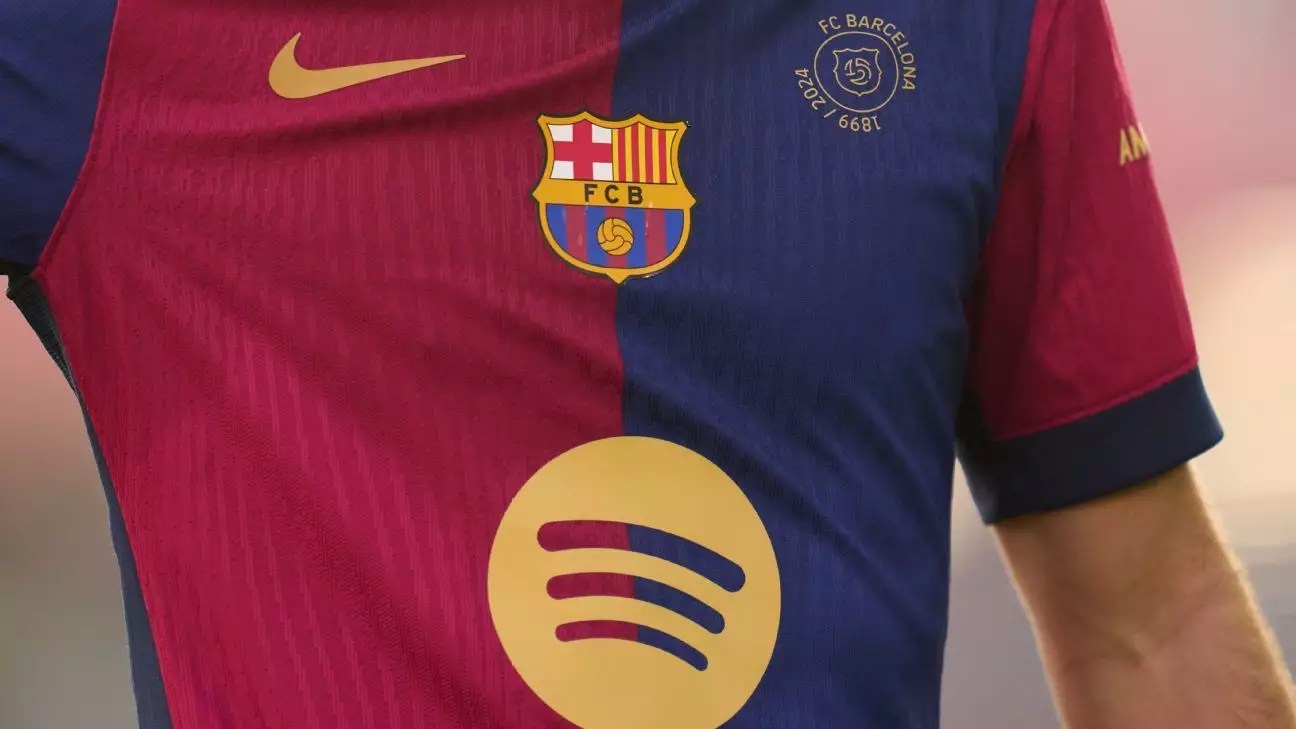FC Barcelona, one of the most storied football clubs in the world, has recently finalized a landmark agreement with Nike that is poised to redefine both the club’s financial landscape and its relationship with the global brand. The deal, ratified by Barcelona’s members at an emergency assembly, marks a pivotal moment in the club’s ongoing struggle to stabilize its finances amidst scrutiny from LaLiga’s financial regulations. As we unpack the details and implications of this crucial partnership, it becomes evident that this agreement is more than just a monetary boon; it is a strategic maneuver that aims to propel Barcelona’s renewed ambitions both on and off the pitch.
While specific figures surrounding the agreement are shrouded in confidentiality, the general consensus points to a deal that is astronomically valued at over €100 million annually, excluding performance-based bonuses. This figure not only eclipses previous contracts within the realm of football but also positions Barcelona as a frontrunner in the race for lucrative sponsorships within sports. The endorsement of club president Joan Laporta, who referred to the contract as “the best financial agreement in the history of sport with a kit supplier,” indicates a robust confidence in the deal’s potential.
The substantial financial influx comes at a pivotal time for the club, which has faced significant financial challenges in recent years. The agreement with Nike is expected to play a key role in alleviating Barcelona’s debt crisis, helping them recover from years of mismanagement and overspending. Laporta’s assertion that the deal “makes us stronger on all levels” is a critical reminder of how commercial partnerships can influence the broader strategy of football clubs now operating in a highly competitive environment.
Despite the overwhelming support for the deal—419 votes in favor compared to 27 against—concerns were raised by members regarding transparency and the true financial implications of the contract. The reluctance to disclose complete details has fueled skepticism among some members, who argue that understanding the full financial context is vital as the club attempts to recover from its current economic predicament.
Furthermore, the involvement of agent Darren Dein has not gone unnoticed. His previous role in securing the agreement between Barcelona and Spotify adds another layer of complexity, intersecting issues of sponsorship ethics with member scrutiny. Members voiced legitimate concerns relating to the overall prices of merchandise and the club’s financial practices, highlighting the necessity for Barcelona to maintain a clear line of communication with its socios.
Historically, Barcelona and Nike have shared a partnership dating back to 1998. This long-standing relationship underscores the mutual benefits that can arise from aligning brand identities with sporting ethos. As Barcelona endeavors to align itself within LaLiga’s strict financial fair play regulations—currently facing a spending cap of €426 million—the Nike agreement may serve as a pathway toward reclaiming their former financial stability.
However, insights reveal that even with these significant funds, the club is far from resolving its immediate challenges. Reports suggest that the deal alone will not suffice to bring the club within their legal spending limits or to finalize the registrations for new players such as Dani Olmo and Pau Víctor. This reality reiterates the complexities faced by major clubs in balancing immediate financial needs against long-term strategic growth.
Ultimately, Barcelona’s new contract with Nike represents both an opportunity and a challenge. While the deal promises substantial financial support, it also raises critical questions about the club’s longer-term strategy for economic recovery and stability in a highly unpredictable market. As FC Barcelona looks to redefine its narrative amidst financial turmoil, the success of this partnership will depend not only on the numbers but on how effectively the club can harness this new influx of funds while addressing the concerns of its members. The coming months will be crucial in determining whether this agreement will usher in a new era of prosperity or serve as a temporary fix to deeper-rooted issues within the club’s financial strategy.


Leave a Reply